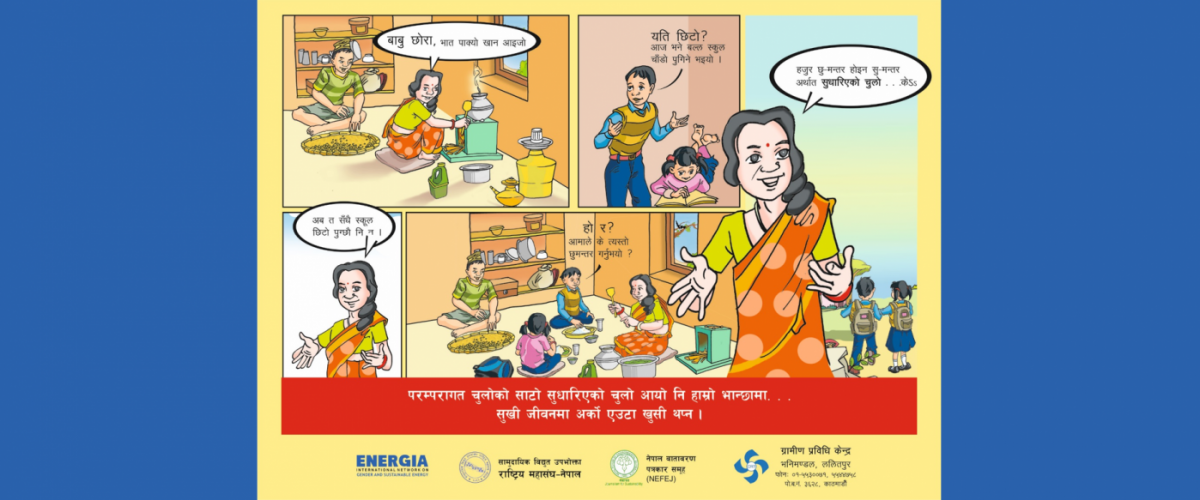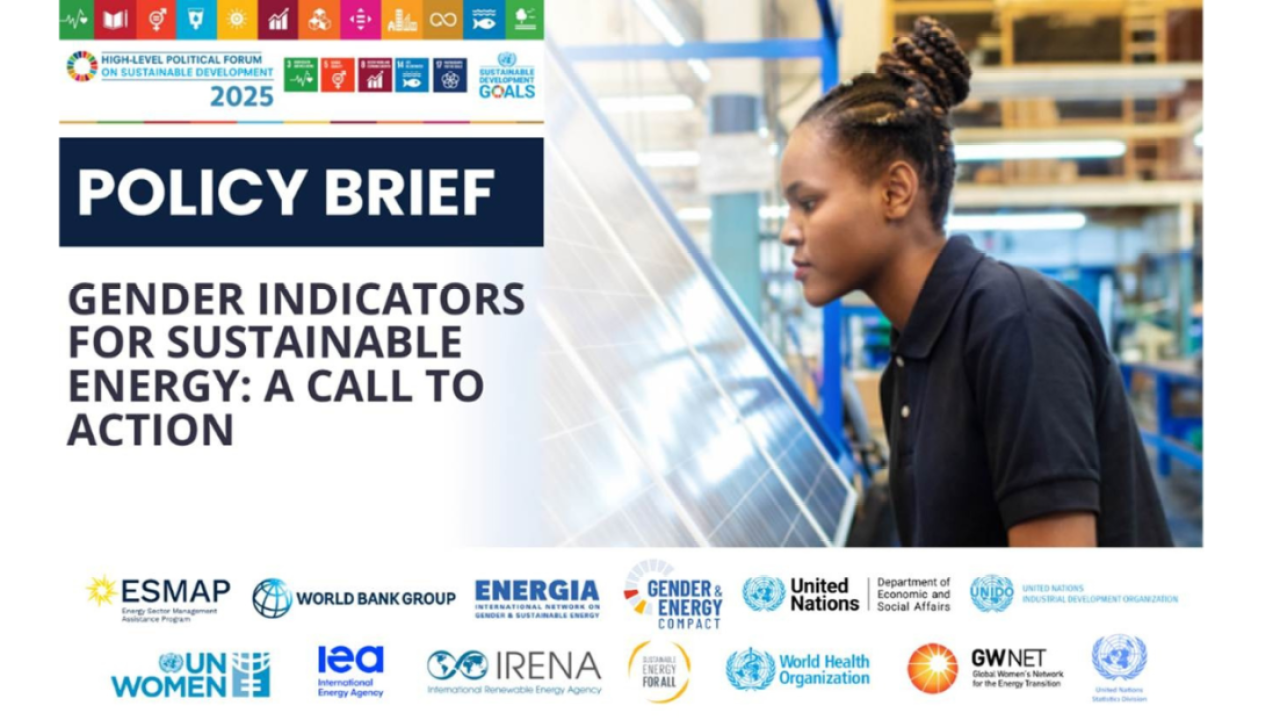Centre for Rural Technology Nepal (CRT/N) has been actively reaching out to children and young people, their parents and educators, to advocate sustainable energy and increase awareness of its importance. In the past year, advocacy and awareness raising in Nepal included a creative portrayal of the importance of improved cookstoves, capacity building programmes, the distribution of educational materials, as well as meetings with policymakers and curriculum developers aimed at integrating energy issues into primary school curriculum. These activities are a part of ENERGIA’s advocacy programme.
One way the Nepalese children and young people, as well as their parents, have become more familiar with the benefits of sustainable energy was through a play that promoted the use of clean cookstoves. The play highlighted that improved cookstoves reduce the amount of smoke in the kitchen and are therefore better for people’s health. Additionally, the play conveyed that clean cookstoves have environmental benefits as well.
So far, the play has been performed at several schools in Udayapur, Kavre and Lalitpur districts, to the total audience of more than 2,500 students, 50 teachers and 1,500 other attendants. Additional people learned about the play through local media coverage of the performances. There are plans to further expand the reach of the play and its messages in 2017, through additional performances and video screenings.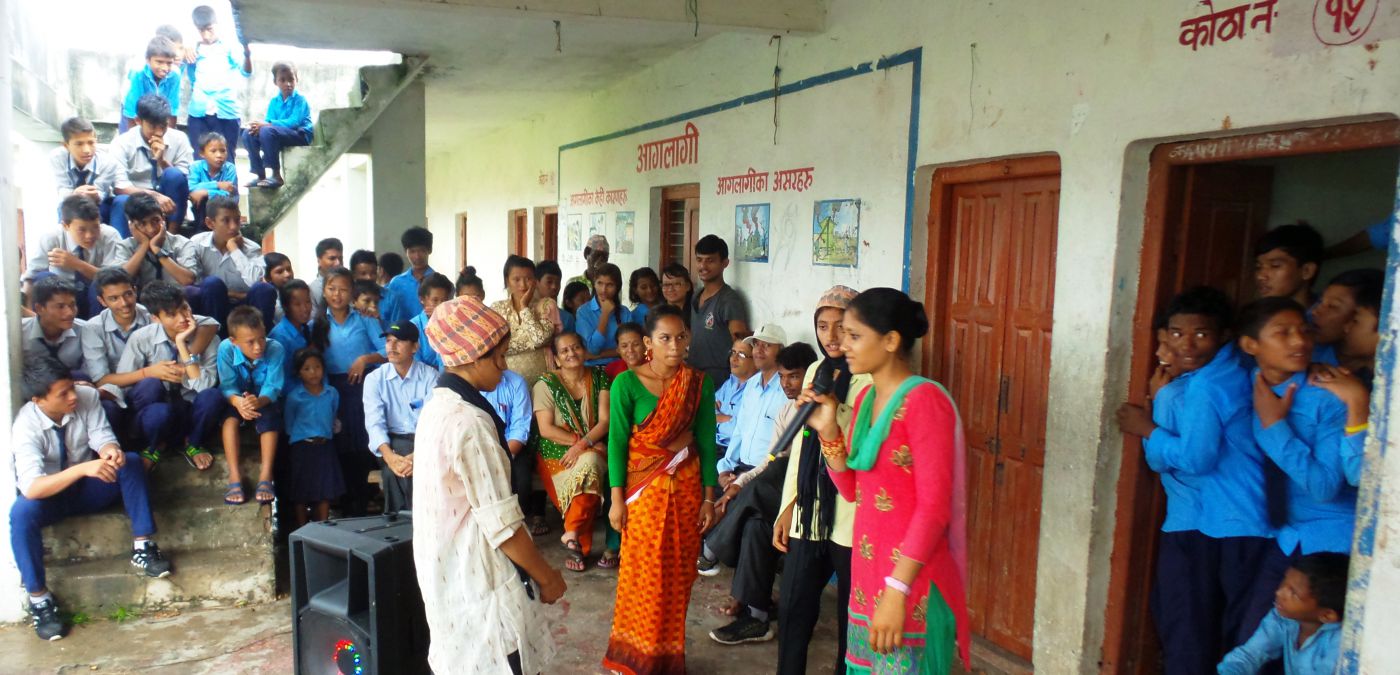
The play was developed by Children and Women Save Campaign Nepal (CAWS) in co-ordination with the South Lalitpur Rural Electric Cooperative Limited, Community Rural Electrification Entity.
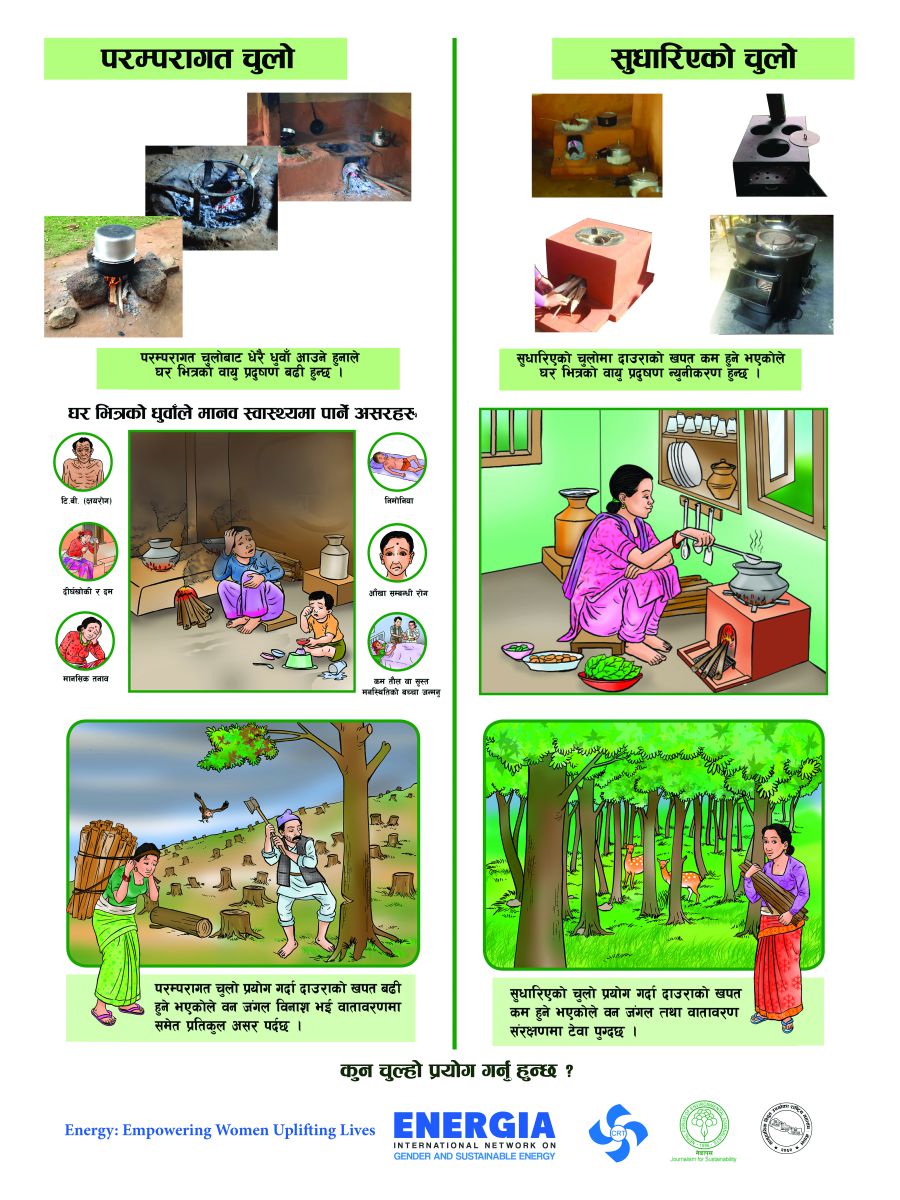 CRT/N has also been raising awareness about renewable energy sources and technologies through a special flip chart, posters and banners developed for Nepalese schools. So far, these materials have reached more than 2,500 pupils. The direct recipients of these materials have been the local rural electrification entities (Community Rural Electric Entities – CREEs), local government organisations, schools and participants in various training programmes. The latter include teachers who attend special capacity building programmes, and are consequently able to effectively use the materials.
CRT/N has also been raising awareness about renewable energy sources and technologies through a special flip chart, posters and banners developed for Nepalese schools. So far, these materials have reached more than 2,500 pupils. The direct recipients of these materials have been the local rural electrification entities (Community Rural Electric Entities – CREEs), local government organisations, schools and participants in various training programmes. The latter include teachers who attend special capacity building programmes, and are consequently able to effectively use the materials.
At least 15 teachers from 10 schools in Lalitpur and 16 teachers from 11 different schools in Udayapur district are already well prepared to share their knowledge of renewable energy technologies and their benefits over traditional energy technologies with their pupils. Those teachers attended a two-day training programme dedicated to this topic that was also organized by our Nepalese partner organisation.
Apart from raising awareness through extracurricular activities and informational materials, CRT/N has been advocating the inclusion of energy related education in the primary school curriculum. Following up on a previous commitment by the Education Resource Centre in Lalitpur (a unit of the Ministry of Education), CRT/N and the Curriculum Development Centre representatives met to discuss this issue, with a focus on grades one to five. Consequently, the development of the curriculum is nearly finalised, and the material is set to be used in other districts as well.
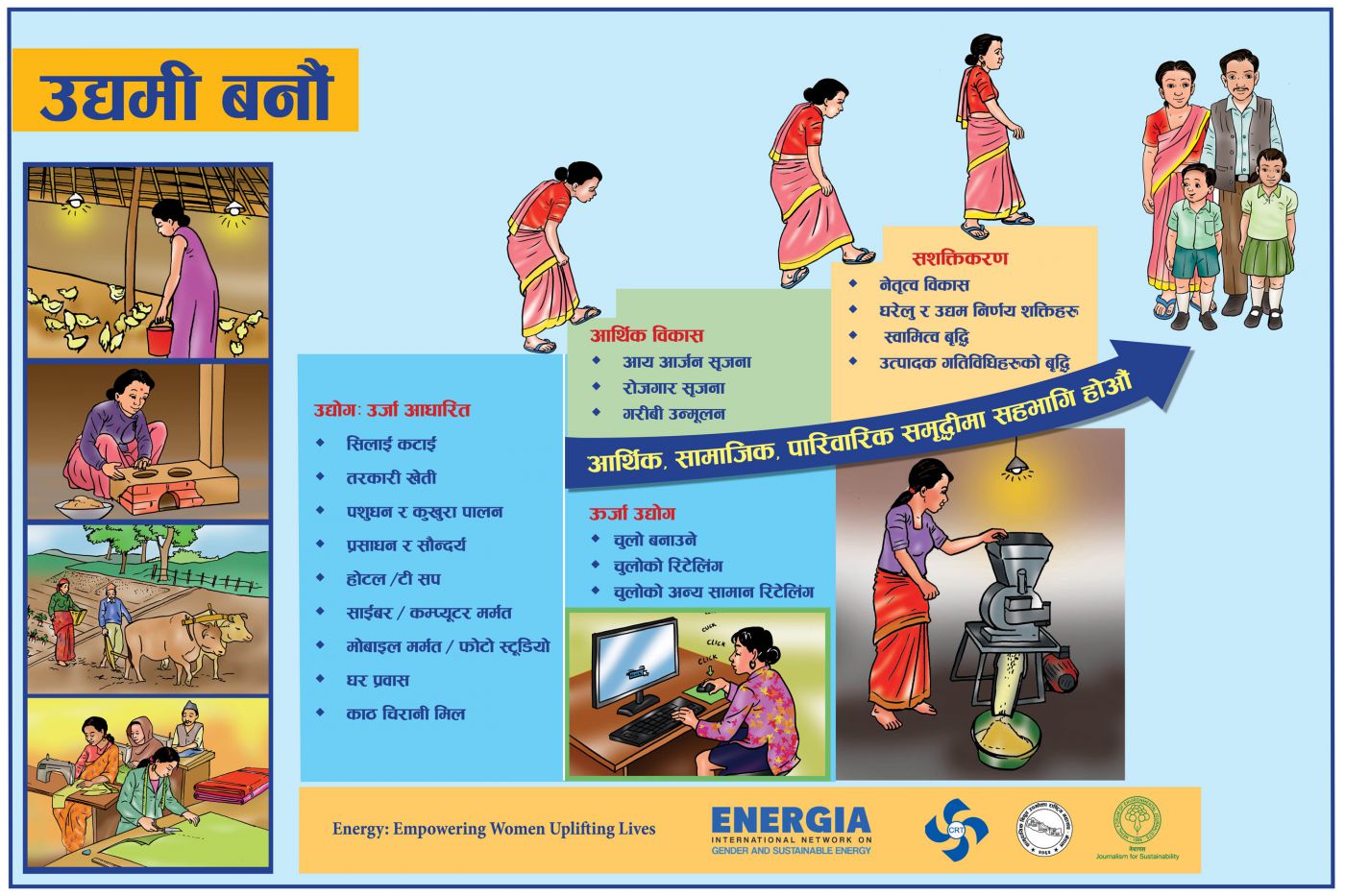 Indira Shakya – who oversees ENERGIA’s Gender and Energy Advocacy Programme in Nepal – pointed to a range of effects of these activities: “Schools have started demanding sensitisation of students and teachers regarding clean cookstoves and sustainable energy, and we have been receiving a number of requests for teaching materials. In Lalitpur, the local government has started talking about the importance of improved cookstoves for better health, and the municipality of Katari has substantially increased the budget for women’s empowerment activities. The local level government agency has formed an improved cookstoves users group and plays a crucial role in the dissemination of those cookstoves in the local community.” Throughout 2017, CRT/N will continue receiving ENERGIA’s support to keep doing its impactful work with young people, their families, educators and policy makers in Nepal.
Indira Shakya – who oversees ENERGIA’s Gender and Energy Advocacy Programme in Nepal – pointed to a range of effects of these activities: “Schools have started demanding sensitisation of students and teachers regarding clean cookstoves and sustainable energy, and we have been receiving a number of requests for teaching materials. In Lalitpur, the local government has started talking about the importance of improved cookstoves for better health, and the municipality of Katari has substantially increased the budget for women’s empowerment activities. The local level government agency has formed an improved cookstoves users group and plays a crucial role in the dissemination of those cookstoves in the local community.” Throughout 2017, CRT/N will continue receiving ENERGIA’s support to keep doing its impactful work with young people, their families, educators and policy makers in Nepal.


